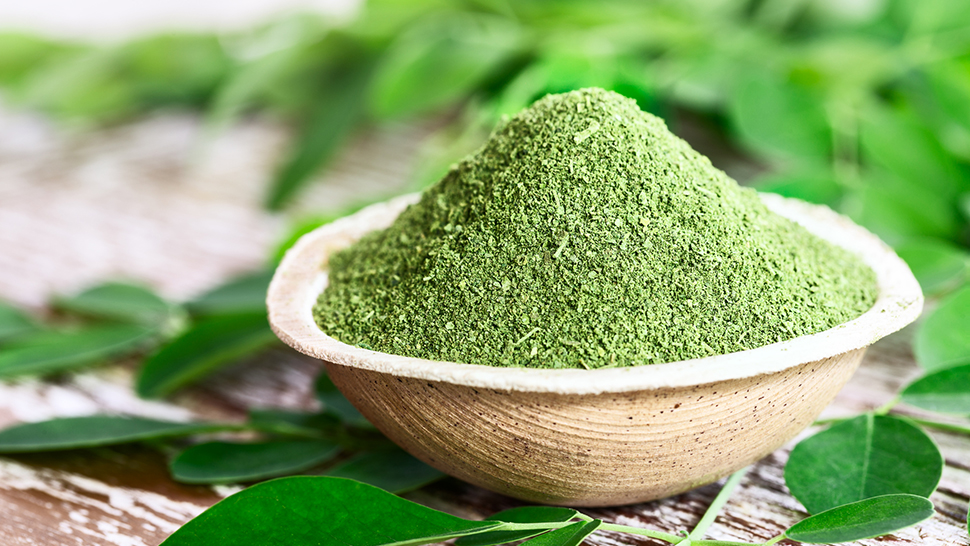The Buzz: Moringa
- by bonappetit
 What’s the buzz?
What’s the buzz?
Moringa is the latest must-have green powder for health food–obsessed folks.
What does the science say?
Moringa is a small tree that’s native to India, Nepal, and Pakistan, whose leaves and pods have been used in traditional East Asian medicine traditions to address many diseases, including diabetes, heart disease, eczema, and digestive disorders. It’s said to have anti-inflammatory properties, offer a long list of vitamins and minerals, stabilize blood sugar, and even lower cholesterol. In the United States, it’s sold as a supplement in either powdered or pill form — typically made from the dried leaves. People (and food companies) are adding moringa to everything from juices and smoothies to baked goods and oatmeal. With the growing consumer interest in functional foods and holistic nutrition, it’s no surprise that moringa is touted as the latest superfood that everyone should be consuming.
But, as with most trendy superfoods, these claims are not well-backed by science. While it does contain a number of vitamins and minerals, amounts are relatively low compared to other more common produce, so…sorry if we sound like a broken record, but once again, you’re better off eating a variety of fruits and vegetables to get what you need. Moringa does offer vitamin C, beta-carotene, quercetin, and chlorogenic acid — antioxidants that may help fight inflammation — but, again, all of these can be consumed by eating a varied diet. A few small research studies, most of which were done on rats and not humans, have shown some promise in moringa’s blood-sugar and cholesterol-lowering effects, but you shouldn’t rely on this supplement to make enough of a difference to stop other medications or dietary interventions. That said, moringa is generally considered a safe way to add nutrients to your diet and may provide some additional health benefits.
One word of caution: Supplements are poorly regulated, so if you do choose to buy moringa, get it from a trustworthy brand and do your research on how they source it. This is especially true for any online purchases. Make sure it only contains leaves, fruit, and seeds, and not the root or extracts, which aren’t considered safe to eat.
What’s the takeaway?
As with most trendy “superfoods,” moringa is not a miracle worker. It may play a role in reducing inflammation, stabilizing blood sugar, and lowering cholesterol, but more research in humans is needed, especially when it comes to the optimal form and dosing. If you want to add a teaspoon or two to your morning smoothie, it’s likely safe for healthy people (pregnant women and those with compromised immune systems should avoid). Just get it from a reputable source.